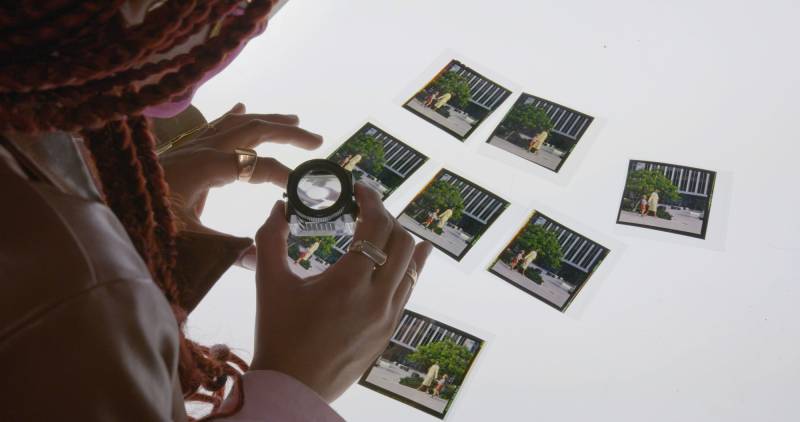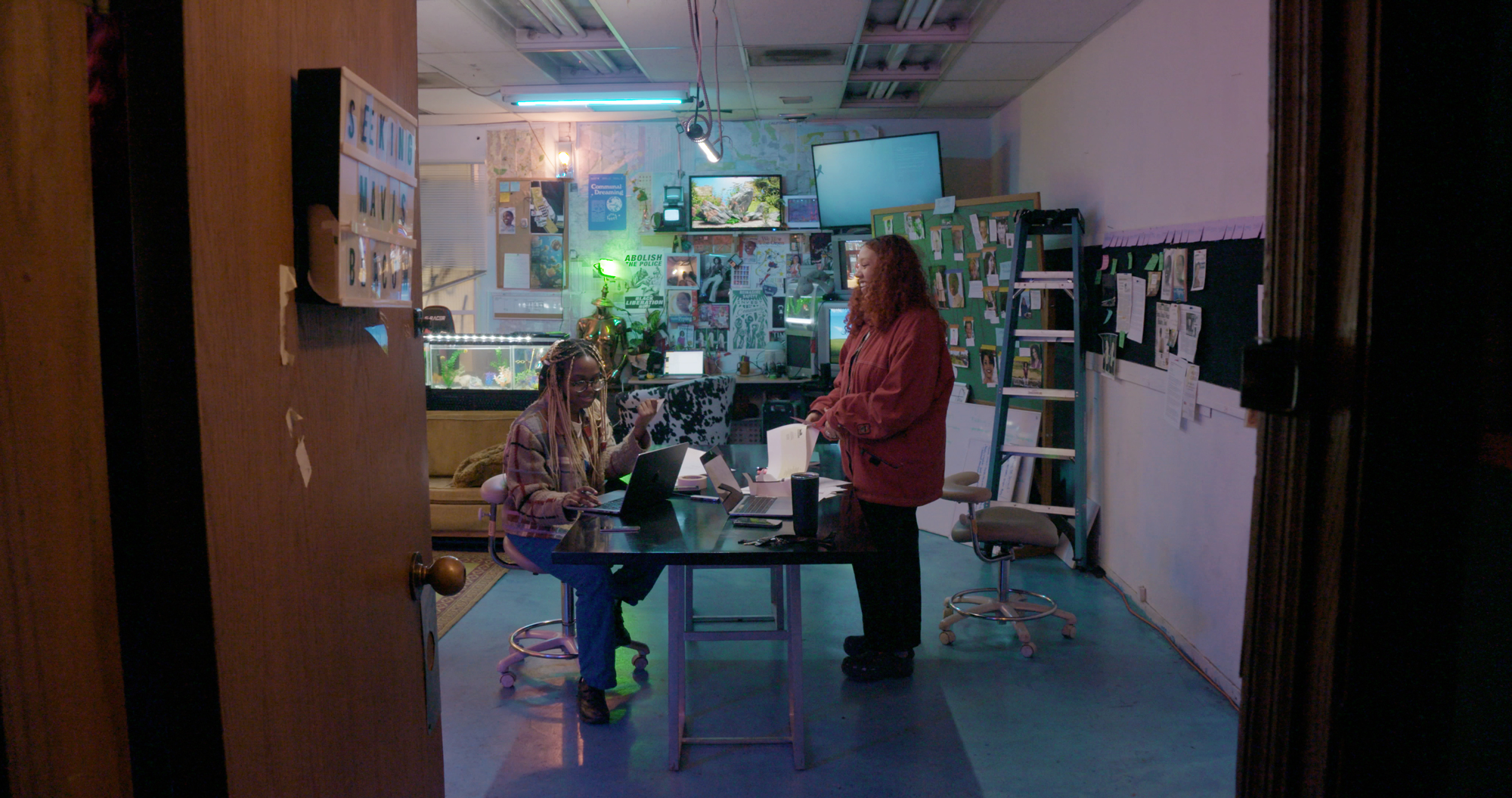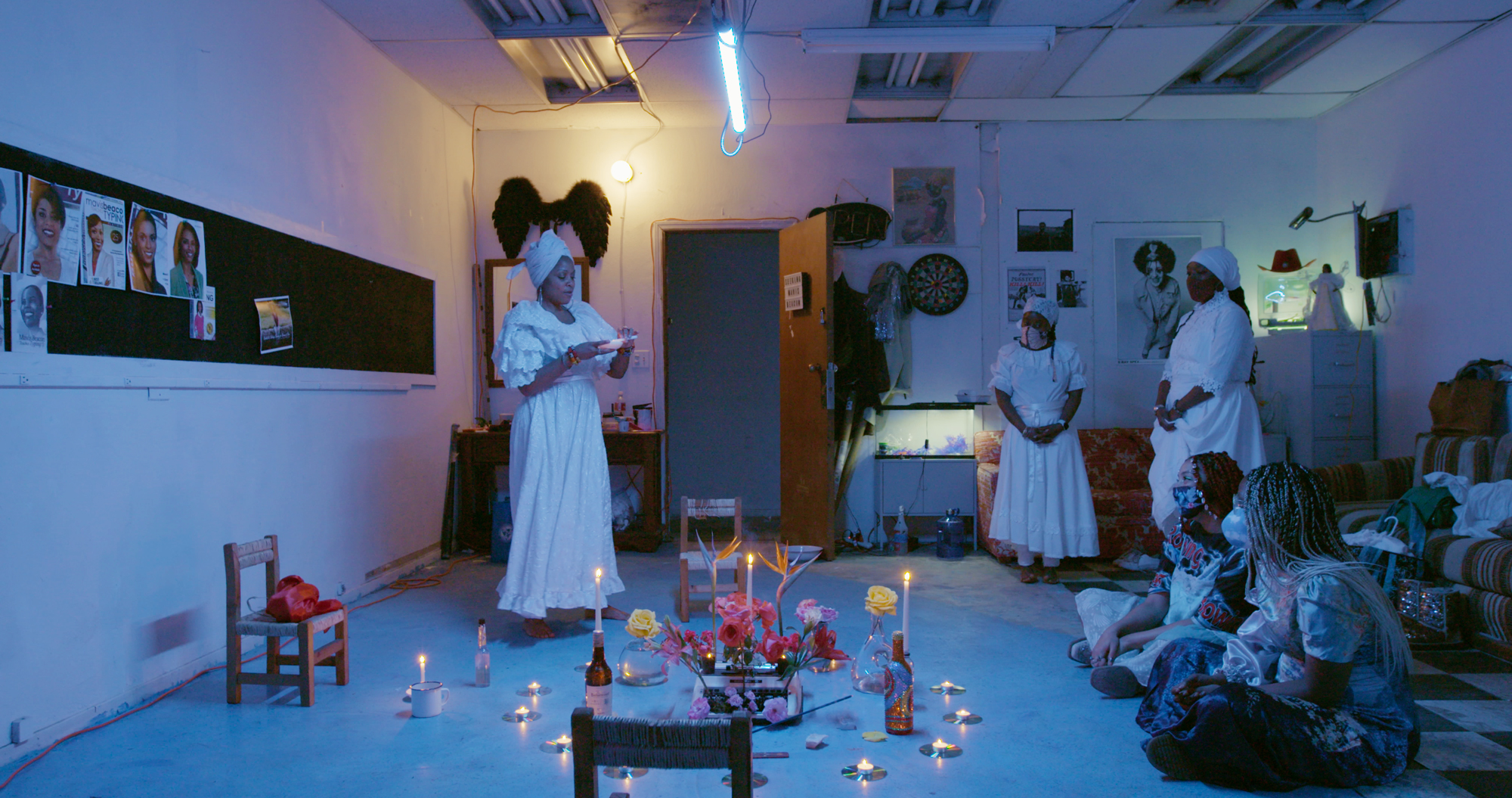For certain generations of schoolchildren, the software Mavis Beacon Teaches Typing was the gateway to a life spent clacking away at keyboards. For an hour or so each week, we would file into our school computer labs and learn about QWERTY, practice using the shift key and work on upping our WPM with a truly stressful speed typing exercise that involved outpacing a pursuing car and avoiding typos in the form of bug splats on the windshield.
‘Seeking Mavis Beacon’ Argues That Not Everyone Needs to Be Found

Mavis was our benevolent, if fictional, instructor. She beamed from the cover of the Software Toolworks packaging as a rare sight in a world of technology dreamed up by white men in Silicon Valley garages: a Black woman of great knowledge and skill.
For director Jazmin Jones and her collaborator and associate producer Olivia McKayla Ross, Mavis Beacon is a hero, a symbol of their right to use and create technology. In this vein, their project to find the real woman who posed for the role of Mavis in 1987 — Haitian immigrant Renée L’Espérance — is a kind of mythical quest. Seeking Mavis Beacon, Jones’ excellent new documentary opening Sept. 6 at the Roxie, follows the pair’s attempts to find L’Espérance, honor her and eventually give her the respect and consideration she did not receive as Toolworks’ self-proclaimed “Betty Crocker.”

Filmed between 2020 and 2023, Seeking is many things: a thrilling IRL investigation; an argument for representation in technology; a manifesto on cyberfeminism; a buddy film; a cross-country adventure; a pandemic-era story about separation and dislocation; and an ethical conundrum that plays out transparently, sensitively, in very real conversations.
“It’s about us on the road, finding ourselves [in a] coming-of-age journey,” Jones says. “Which is great because initially I thought I was just making a really brooding detective movie. And with Olivia’s involvement came the whimsy.”
The first half of Seeking has a kind of madcap momentum, fueled by Jones and Ross’ neon-hued build-out of their West Oakland investigation headquarters, their warm hang sessions and surreal man-on-the-street interviews about the lasting influence of Mavis Beacon. The pair are dressed fabulously throughout.
Between this footage, the documentary deploys a computer desktop view as an evidence board (though there’s a physical one of those too). Files and videos pop up and play in ingenious, fast-paced montage sequences. For those used to staring at a computer screen with too many tabs open, this presentation feels completely natural, and allows for delightful, wide-ranging references: a Stan Brakhage experimental film clip, a Sade interview about stepping back from fame.

At roughly the midway point, a shift occurs. “We thought that the reason no one had spoken to Renée is because the right people hadn’t asked the right questions,” Jones says. But what if L’Espérance’s two-decade-plus absence from the public eye is actually a calculated move? We watch, in real time, as Jones and Ross reevaluate their own narrative understanding of the situation.
Tracking people down for the sake of feeding either nostalgia or collective curiosity has become a cottage industry in the realms of documentary film, podcasting and “where are they now” clickbait stories. Most of those offerings leave a icky aftertaste, but Seeking Mavis Beacon stands apart, through the clear earnestness of its protagonists and the care they take to consider the ramifications of continuing their search.
By the end of the film, Jones and Ross have gone through something, and we’ve been right there along with them, examining our own impulses towards cut-and-dry answers and easily searchable results. The manifesto has shifted: people have the right to disappear.
“There was a really sweet young filmmaker at the beginning that was like, ‘We’re going to give her a platform that she never had, and she’s going to love us, and we’re going to be best friends and get the best interview ever,’” Jones says. “I’m really glad that I got to grow past that.”
The film’s great gift is that it models a new relationship to information, privacy and artmaking that is not only fun to watch, but just as instructive as a certain high-stakes typing test.
‘Seeking Mavis Beacon’ begins screening at the Roxie Theater (3117 16th St., San Francisco) on Sept. 6, 2024.


